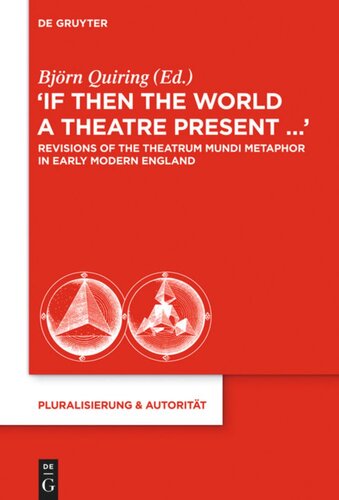

Most ebook files are in PDF format, so you can easily read them using various software such as Foxit Reader or directly on the Google Chrome browser.
Some ebook files are released by publishers in other formats such as .awz, .mobi, .epub, .fb2, etc. You may need to install specific software to read these formats on mobile/PC, such as Calibre.
Please read the tutorial at this link: https://ebookbell.com/faq
We offer FREE conversion to the popular formats you request; however, this may take some time. Therefore, right after payment, please email us, and we will try to provide the service as quickly as possible.
For some exceptional file formats or broken links (if any), please refrain from opening any disputes. Instead, email us first, and we will try to assist within a maximum of 6 hours.
EbookBell Team

4.3
8 reviewsTo metaphorize the world as a theatre has been a common procedure since antiquity, but the use of this trope became particularly prominent and pregnant in early modern times, especially in England. Old and new applications of the “theatrum mundi” topos pervaded discourses, often allegorizing the deceitfulness and impermanence of this world as well as the futility of earthly strife. It was frequently woven into arguments against worldly amusements such as the stage: Commercial theatre was declared an undesirable competitor of God’s well-ordered world drama.
Early modern dramatists often reacted to this development by appropriating the metaphor, and in an ingenious twist, some playwrights even appropriated its anti-theatrical impetus: Early modern theatre seemed to discover a denial of its own theatricality at its very core. Drama was found to succeed best when it staged itself as a great unmasking.
To investigate the reasons and effects of these developments, the anthology examines the metaphorical uses of theatre in plays, pamphlets, epics, treatises, legal proclamations and other sources.